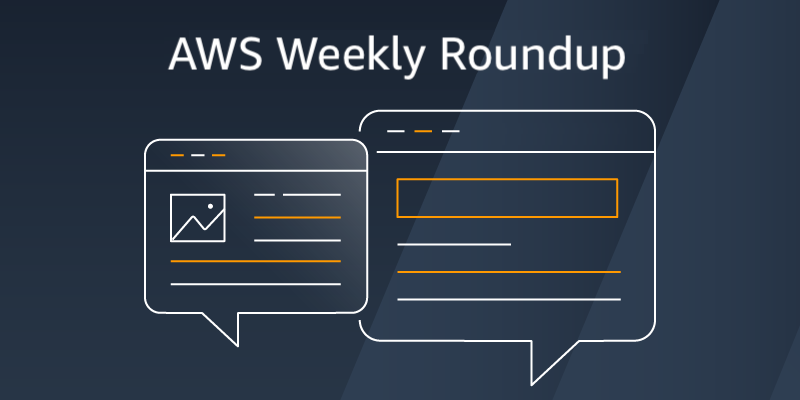AWS News Blog
Category: Amazon Data Firehose
Replicate changes from databases to Apache Iceberg tables using Amazon Data Firehose (in preview)
Amazon Data Firehose introduces a new capability that captures database changes and streams updates to a data lake or warehouse, supporting PostgreSQL, MySQL, Oracle, SQL Server, and MongoDB, with automatic scaling and minimal impact on transaction performance.
AWS Weekly Roundup — Happy Lunar New Year, IaC generator, NFL’s digital athlete, AWS Cloud Clubs, and more — February 12, 2024
Happy Lunar New Year! Wishing you a year filled with joy, success, and endless opportunities! May the Year of the Dragon bring uninterrupted connections and limitless growth 🐉 ☁️ In case you missed it, here’s outstanding news you need to know as you plan your year in early 2024. AWS was named as a Leader […]
Amazon MSK Introduces Managed Data Delivery from Apache Kafka to Your Data Lake
I’m excited to announce today a new capability of Amazon Managed Streaming for Apache Kafka (Amazon MSK) (Amazon MSK) that allows you to continuously load data from an Apache Kafka cluster to Amazon Simple Storage Service (Amazon S3). We use Amazon Kinesis Data Firehose—an extract, transform, and load (ETL) service—to read data from a Kafka […]
File Access Auditing Is Now Available for Amazon FSx for Windows File Server
Amazon FSx for Windows File Server provides fully managed file storage that is accessible over the industry-standard Server Message Block (SMB) protocol. It is built on Windows Server and offers a rich set of enterprise storage capabilities with the scalability, reliability, and low cost that you have come to expect from AWS. In addition to […]
Log your VPC DNS queries with Route 53 Resolver Query Logs
The Amazon Route 53 team has just launched a new feature called Route 53 Resolver Query Logs, which will let you log all DNS queries made by resources within your Amazon Virtual Private Cloud (Amazon VPC). Whether it’s an Amazon Elastic Compute Cloud (Amazon EC2) instance, an AWS Lambda function, or a container, if it […]




